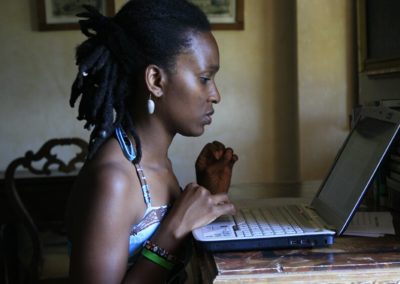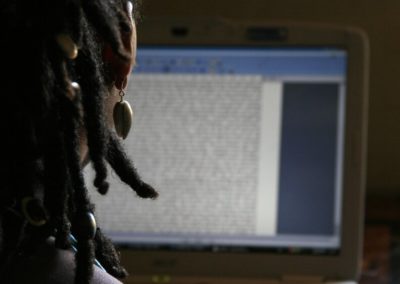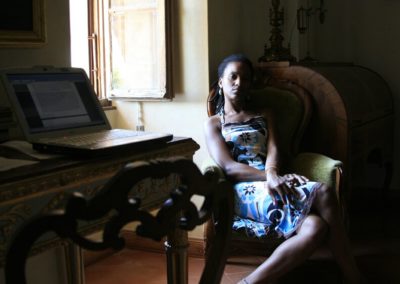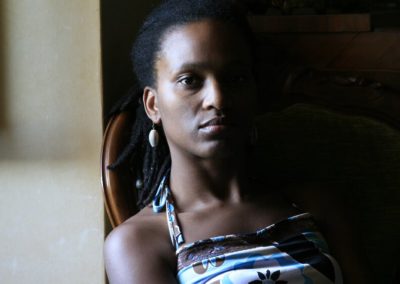The landscape of Umbria, the freedom of space and time in Civitella, so magical they: inspired an errant muse to return and grant me the clarity of vision I needed to finally start birthing a novel I’d carried in my head for a very long time; gave me the unexpected gift of a new brother, no blood relative Daragh, but water can be just as thick as blood; gifted me with rewarding conversations, new insights and friendships I’m sure will span the terms of our natural lives.
Excerpt from a Short Story Completed During My Fellowship, Going Home
Whenever Mike tried to remember the day they fled Jos, he remembered grief: a sadness that his dog could not come with them. He also remembered that they left in the thick of night. He remembered a darkness he could not see through. Bad things always happened in the night.
But his brother disputed this. He said they left at dawn. With the crowing of the cocks and a sky of the lightest blue. Their mother had woken them up and told them to hurry, hurry, they had to leave on a trip in their father’s car. And they had entered the car (without taking a shower) with face caps on their heads and brightly coloured sun glasses around their necks and Mike had sung My Bonny is over the ocean, My Bonny is Over the sea, Oh bring back my bonny to me, to me, his breath stinking of morning breath. And Egbuna ought to remember better. He was older.
Their mother would never talk about that day, not even when the brothers disputed in heated voices , shouting, “You’re wrong!” above each other’s heads. And not even when their voices exploded into fights which only subsided in lachrymose reconciliation would she say a word.
When they appealed to her directly, “Mother, tell us. When did we leave? Morning or night?” she ignored them. Or she said, ” memories are like plates. You don’t leave them dirty.”
Asking their father was not an option. There was a stiffness to him as if he was cut out of cardboard which made him unapproachable. Their mother said that the war had stolen most of his voice so that he spoke in monosyllables like a car bumper sticker. Mike was eight when they left Jos but he could not remember their father any other way. In any case he was not one to be relied on to tell stories. A story teller had to have an excess of words, a belly full of tales that were eager to rush out. Their mother with her look of Christian meekness and a love for storytelling was the parent to approach. However on this one topic, she would not talk. The brothers learnt to live with their versions of the truth and when their mother started showing signs of dementia in old age, the brothers clung even more fiercely to their own truths. It was easier.
But in her final days, the gods breathed into their dementing mother’s head and she, inhaling their breath was hit with a lucidity that stunned her sons and an obvious need to unburden herself so that she- without any prompting – told them the story of how they had fled. It was the first time she had ever told the story, believing staunchly in the days and years after the war when she was much healthier, that certain memories were better buried. And now in her last days believing that the words would rot in her stomach if she did not expel them, she called her sons by her bedside and filled their eyes with remembrance. Her remembrance was nothing like the memories Mike and Egbuna had of it.



